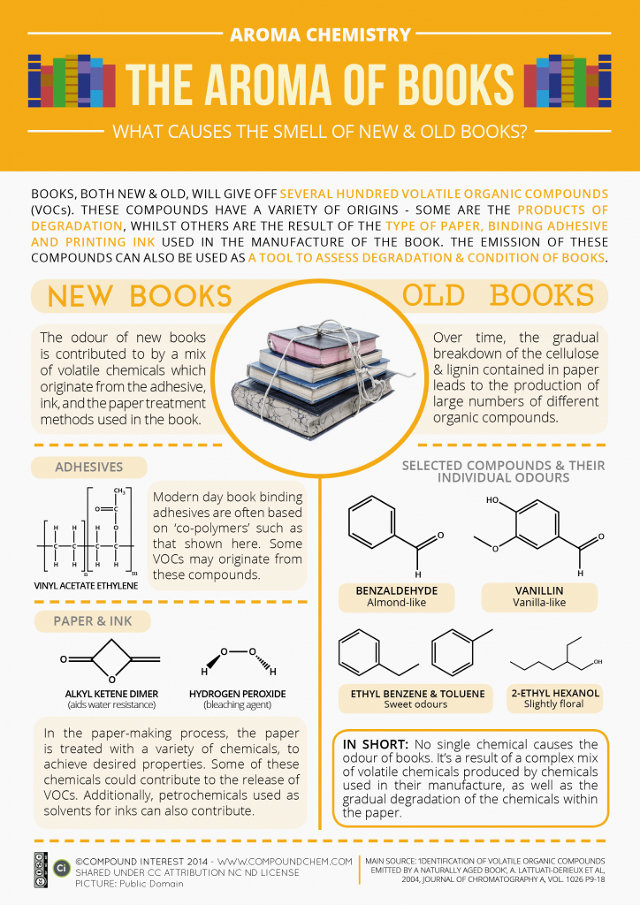These sensory aspects give reading a grounding in reality when your mind is so swept away in imagination. It makes the whole experience feel more real, more visceral. Or at least it does to me.
The smell, in particular, is what concerns us over at RBtL today because it seems a scientist in the UK has determined the origin of that "old book smell" some of us love so much. And what are companies with large stakes in e-reading devices now planning to do? Bottle it up and emit it from your e-reader.
o_O
Co.Exist tells us more:
A Kindle and iPad are great for conveniently porting your entire bookshelf in your purse. But for the majority of Americans who view the independent bookstore as a haven and who get grumpy at the idea of not feeling the physical weight of words on the page, print books are far from dead.
Reading a physical book is indeed a different experience than consuming an electronic counterpart, as book-toting holdouts love to point out. “An e-book offers little promise of discovery or wonder. Browsers may be ubiquitous in our e-portal age, but an e-book doesn’t encourage actual browsing,” is how writer Anna Holmes put it.
One of the most unique and little-noted features of the dead-tree reading platform is its smell. A crisp new edition of Pride and Prejudice is scented a whole lot differently than the musty, middle-aged printing still being read in many a high school English class today.
But what causes these smells? A UK chemist and teacher who runs the blog Compound Interest, an exploration of everyday chemical compounds, went to investigate and came up with an infographic to explain the matter.
That "new book smell" is a combination of the volatile compounds released from ink, bookbinding adhesives, and the paper itself. There isn’t much existing research that looks into these aromas. Because of the variation in chemicals and the hundreds of compounds that go into the process, the exact smells are hard to pin down, the blog notes.
A larger body of research has examined the causes of old book smell, mostly because people use smell as one way to assess the age and condition of older volumes. The smell, the blog says, is caused by the chemical breakdown of lignin and cellulose compounds in the paper, which give off a wide variety of organic compounds, including those with smells described as being reminiscent of almonds, vanilla, floral, and sweet. Furfural, one byproduct, is often used to date the publication of old books.
It’s clear that no one chemical causes the smell of new and old books. But if the printed word does go the way of the stone tablet one day, the chemistry industry can still save us. The Smell of Books (TM) offers “aerosol e-book enhancers” in scents such as Classic Musty Scent and Eau You Have Cats.
See the original post HERE
Personally, if my e-reader ever starts smelling, I'm throwing it the eff out.
Credit: Title lyrics from "Bottle It Up" by Sara Bareilles.


No comments:
Post a Comment